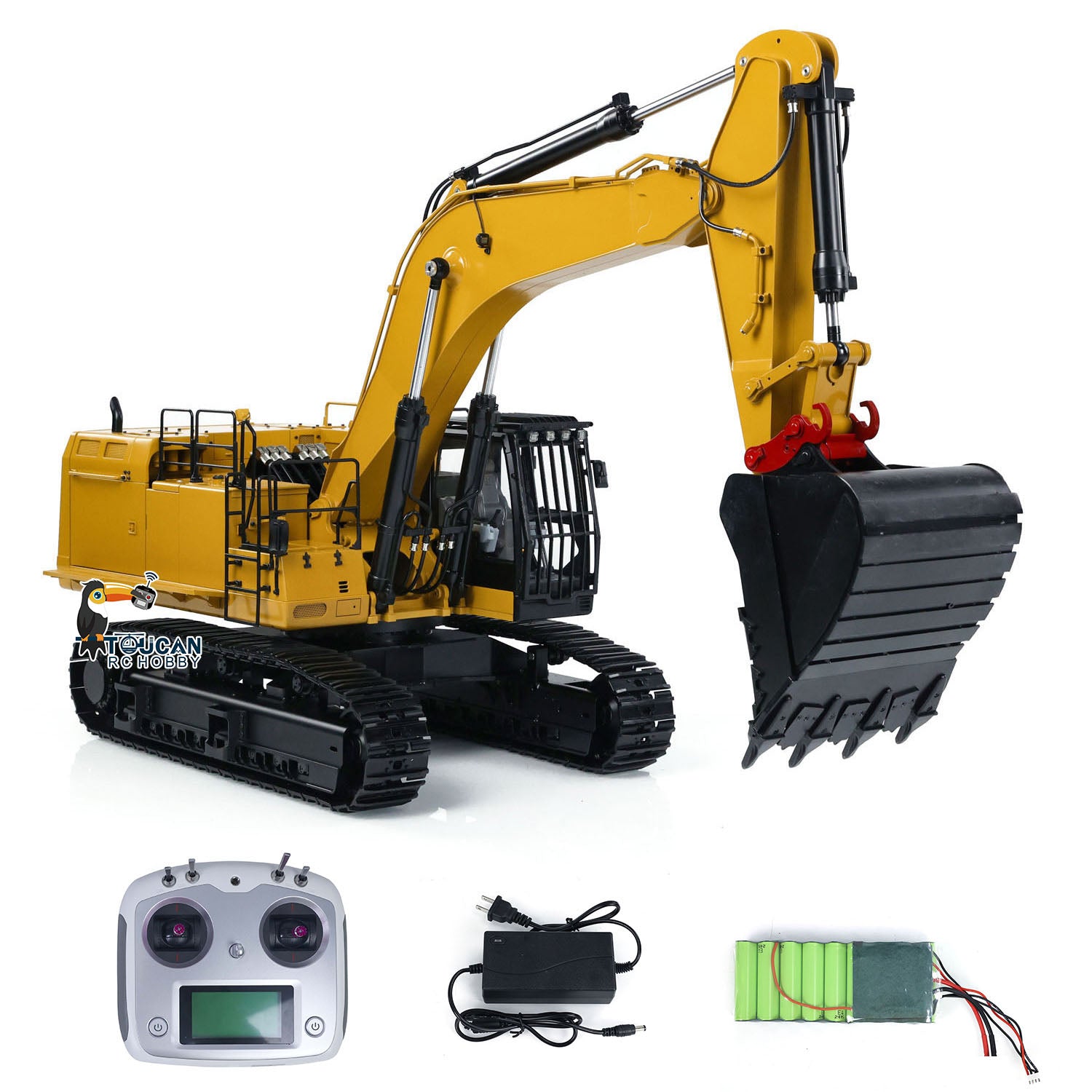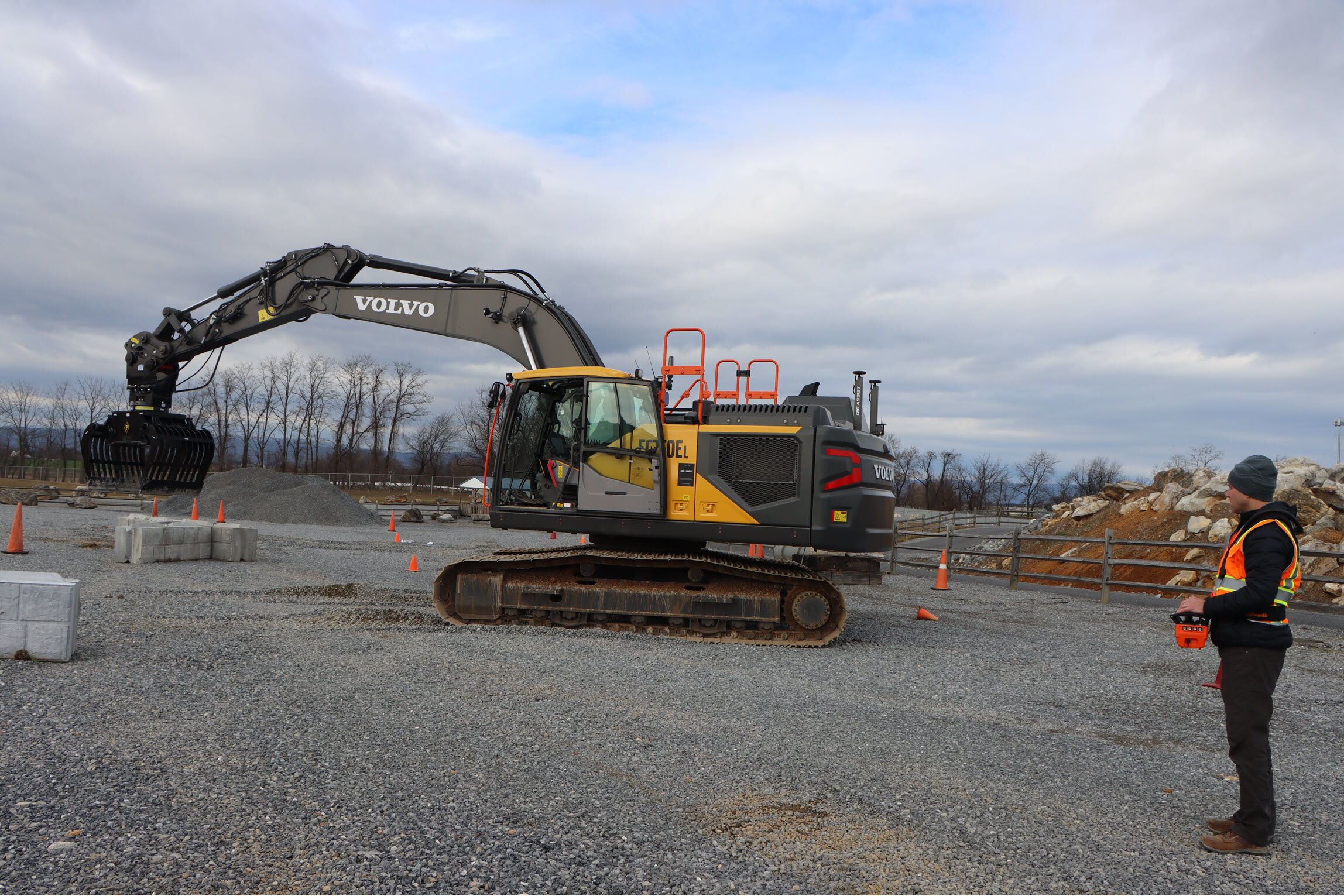Understanding Just How Excavator Works and Its Effect On Effectiveness
Excavators play an essential role in building and construction and mining operations, relying upon an intricate interplay of hydraulic and mechanical systems. Their capacity to perform a selection of jobs rests on both their style and the technology incorporated within. Comprehending these parts can considerably impact functional performance and efficiency. As developments remain to improve the sector, one have to consider how these modifications will certainly affect future methods and performance.
The Basics of Excavator Mechanics

The Function of Hydraulic Equipments in Excavators
At the heart of excavator operation lies the hydraulic system, which plays a pivotal function in powering the equipment's activities and functions. This system utilizes pressurized hydraulic fluid to move energy, enabling different actions such as digging, swinging, and training. By using the principles of hydraulics, excavators can execute tasks with exceptional precision and force, improving overall operational efficiency.The hydraulic system includes key components, including pumps, cylinders, and valves, which function together to regulate the circulation and instructions of the liquid. When the operator engages the controls, the hydraulic liquid is guided to details cyndrical tubes, equating the driver's commands into physical movement. This device allows for smooth and responsive activities, which are crucial in building and construction and excavation atmospheres. double e volvo rc excavator. The performance of the hydraulic system straight impacts the performance and versatility of the excavator, making it an important aspect in modern excavation processes
Trick Parts of an Excavator
Comprehending the vital parts of an excavator is important for realizing exactly how this effective equipment operates. An excavator contains numerous considerable aspects, including the undercarriage, residence, arm, bucket, and boom. The undercarriage offers stability and mobility, typically including wheels or tracks to navigate different surfaces. Your house contains the engine and hydraulic systems, allowing the driver to manage movement and power the device. The boom expands from the home, making it possible for vertical reach, while the arm attaches to the pail, assisting in digging and lifting operations.Additionally, the cab houses the operator, equipped with controls for specific handling. Each of these parts plays an important duty in the excavator's overall functionality, contributing to its performance and performance on construction websites. Recognizing these parts assists in optimizing and preserving excavator performance, making sure jobs are finished safely and successfully.
Accessory Versatility and Its Advantages
Accessory flexibility is an essential element of excavators, enabling drivers to change in between various tools customized for specific jobs. This flexibility not just improves work effectiveness however additionally adds to cost-effectiveness by lowering the need for multiple makers. Recognizing the various kinds of accessories offered can considerably affect the total efficiency and capability of an excavator on work sites.
Sorts of Add-ons
While excavators are primarily identified for their excavating capabilities, their real versatility depends on the wide range of attachments available. These accessories boost the excavator's capability, permitting it to execute various jobs past excavation. Usual attachments include pails (for digging and scooping), hydraulic thumbs (for understanding products), and augers (for piercing holes) Grapples are made use of for handling and moving particles, while rippers can break up difficult surfaces. Other specialized accessories, such as plates and rakes, allow excavators to adjust to particular task needs. This variety not just boosts the device's energy across various fields, including landscape design, demolition, and construction, however likewise allows operators to customize their equipment to fulfill particular job demands effectively.
Enhanced Job Effectiveness
Maximizing work efficiency is a primary advantage of utilizing different excavator attachments. Different add-ons permit an excavator to perform several tasks without needing to switch over equipment, conserving beneficial time and labor. Utilizing a hydraulic hammer can break concrete while a pail accessory can excavate dirt, making it possible for a smooth process. This convenience lowers downtime connected with tools modifications and enhances efficiency on-site. In addition, specialized add-ons boost accuracy in tasks such as grading or landscaping, resulting in greater high quality outcomes. The capacity to adapt to different task demands not only enhances operations but also minimizes the demand for extra machinery, guaranteeing that projects are completed swiftly and efficiently. On the whole, attachment versatility considerably adds to increased job performance in excavation work.
Cost-Effectiveness and Convenience
Cost-effectiveness is a substantial advantage of utilizing versatile excavator attachments. These attachments permit a single excavator to perform multiple tasks, minimizing the requirement for extra equipment and labor - double e volvo rc excavator. By switching over between buckets, hammers, and grapples, operators can deal with various projects, from excavating to demolition, thus taking full advantage of devices application. This versatility not only decreases functional expenses however additionally lessens downtime linked with changing tools. Additionally, the capability to customize excavators with specialized accessories boosts performance, as they can efficiently handle diverse tasks according to task demands. In conclusion, the combination of cost-effectiveness and versatility in excavator attachments adds to enhanced functional effectiveness and source allocation in construction and excavation jobs

Advanced Modern Technology in Modern Excavators
Modern excavators are increasingly geared up with innovative modern technology that transforms excavation processes. Automation simplifies operations, while boosted fuel efficiency decreases functional prices. Additionally, smart control systems improve precision and safety and security, noting a considerable advancement in excavation tools.
Automation in Excavation Processes
As excavation innovation progresses, automation has actually arised as an essential element in improving effectiveness and accuracy on work websites. Modern excavators are equipped with sophisticated automated systems that help with tasks such as grading, digging, and trenching with marginal operator treatment. These systems use sensing units, GPS, and artificial intelligence formulas to assure exact placing and depth control, considerably decreasing the margin for error. Additionally, automation permits operators to focus on tactical decision-making as opposed to manual controls, causing boosted performance overall. Such technologies not just simplify process however also enhance safety by reducing human error in intricate operations. Subsequently, the assimilation of automation in excavation procedures stands for a significant innovation in building innovation, driving the industry in the direction of greater performance and effectiveness.
Boosted Gas Efficiency
Advancements in innovation have also caused significant enhancements in fuel efficiency for modern excavators. Modern devices are outfitted with innovative engines that optimize power output while reducing fuel intake. These engines utilize ingenious burning technologies, such as turbocharging and straight fuel injection, to boost efficiency and performance. In addition, light-weight products in construction minimize overall weight, permitting less power expense throughout operation. The introduction of variable rate controls allows operators to adjust engine performance according to details tasks, further minimizing gas usage. As a result, these improvements not only reduced functional costs but likewise add to environmental sustainability by lowering discharges. In general, improved gas effectiveness in excavators is a necessary development that reinforces productivity and financial practicality in the construction industry.
Smart Control Systems
While drivers browse progressively complicated job websites, clever control systems in excavators have actually emerged as essential devices for enhancing performance and precision. These sophisticated innovations make use of algorithms and sensing units to monitor various specifications such as tons weight, terrain conditions, and operational performance. By instantly adjusting hydraulic features, smart systems optimize device efficiency, resulting in boosted performance and reduced endure elements. Furthermore, operators take advantage of intuitive interfaces that offer real-time feedback and diagnostics, permitting for notified decision-making. This combination of technology not just enhances procedures yet additionally lessens human error, adding to more secure work atmospheres. As the building sector proceeds to develop, smart control systems will play recommended you read a vital function in forming the future of excavator efficiency and effectiveness.
Enhancing Functional Efficiency With Excavators
Excavators play a necessary function in improving operational effectiveness across numerous construction and excavation tasks. Their versatility allows for numerous tasks, including digging, product, and lifting handling, which streamlines operations and decreases the demand for extra tools. With powerful hydraulic systems, excavators can carry out sturdy tasks with precision, considerably decreasing the moment needed to full jobs. The assimilation of sophisticated technology, such as general practitioner and automated controls, further maximizes their operation, making it possible for drivers to accomplish better precision and lower product waste. In addition, contemporary excavators are developed to consume less fuel and reduce discharges, adding to both cost financial savings and ecological sustainability. By utilizing excavators effectively, building and construction teams can boost productivity, fulfill project deadlines, why not find out more and improve overall website management. This multifunctionality and effectiveness make excavators important tools in the modern construction landscape.
The Future of Excavators in Building and Mining Industries
As the construction and mining markets develop, the future of excavators is poised for considerable improvement driven by technological technology and altering operational needs. Advances in automation and expert system are reshaping excavator capabilities, permitting for enhanced precision and effectiveness in procedures. Autonomous excavators are emerging, minimizing the demand for human treatment and reducing the danger of accidents.Moreover, the integration of telematics and IoT modern technology allows real-time monitoring of maker performance and anticipating maintenance, maximizing uptime. Eco-friendly designs, consisting of electric and hybrid models, are getting grip, aligning with sustainability goals within the industry.Additionally, the use of sophisticated products and lighter layouts boosts gas efficiency while preserving efficiency criteria. As these fads progress, excavators will certainly play an important function in satisfying the increasing needs for performance and safety and security in construction and mining, ultimately transforming operational landscapes.
Regularly Asked Concerns
Just How Do Weather Condition Conditions Influence Excavator Efficiency?

Weather conditions considerably influence excavator efficiency, as rain and mud can hinder grip and security, while severe temperatures may influence hydraulic systems. Operators should adjust to these variables to guarantee perfect functionality and security throughout procedures.
What Safety And Security Measures Should Operators Adhere To While Making Use Of Excavators?
Security actions for excavator operators consist of putting on proper individual safety equipment, carrying out pre-operation evaluations, ensuring correct communication with ground workers, maintaining a secure distance from above hazards, and adhering to established functional procedures to avoid mishaps.
Exactly How Typically Should Excavators Be Maintained for Ideal Performance?
Excavators must be kept routinely to assure peak efficiency, commonly every 250 operating hours or as defined by the supplier. Routine checks boost dependability, prevent unexpected malfunctions, and prolong the lifespan of the equipment.
What Is the Typical Life-span of an Excavator?
The average lifespan of an excavator commonly varies from 10,000 to 15,000 hours of procedure. Aspects affecting durability include upkeep techniques, operating problems, and the quality browse around these guys of the maker itself, affecting overall efficiency and effectiveness.

Can Excavators Operate on Uneven Surface Effectively?
Excavators can operate efficiently on unequal surface because of their expressed styles and adjustable tracks. These attributes permit them to preserve stability and traction, allowing effective procedure in tough atmospheres frequently encountered in building and construction and landscape design projects. Each of these elements plays an important duty in the excavator's general performance, adding to its effectiveness and performance on building and construction websites. Taking full advantage of task performance is a key advantage of making use of numerous excavator add-ons. While operators navigate significantly intricate task websites, smart control systems in excavators have emerged as crucial devices for enhancing effectiveness and accuracy. Excavators play a vital role in improving functional performance across numerous construction and excavation tasks. Advancements in automation and man-made intelligence are reshaping excavator capabilities, allowing for improved accuracy and effectiveness in operations.